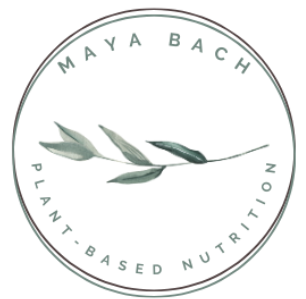Hit your plant-based protein goals
Whether you’re trying to manage your weight, eat more plant-based, or navigate PCOS, getting enough protein is important. Use this calculator to discover your ideal protein target.
This is for informational purposes only and is not meant to replace medical advice from a licensed healthcare provider. Health history, activity level, and current health goals impact your specific protein needs.
To learn more about nutrition coaching, click here.
What is plant-based protein vs. animal-based protein?
Plant-based and animal-based proteins are where you get your protein. The critical difference lies in whether the protein comes from plants or animals.
Plant-Based Protein: Plant-based proteins include foods like legumes (beans, lentils), nuts, seeds, grains, vegetables, and certain plant-based products like tofu and tempeh. These plant-based sources are generally rich in fiber, vitamins, minerals, antioxidants, and protein.
Animal-Based Protein: Animal-based protein comes from animal sources, such as meat, poultry, fish, eggs, and dairy products like cheese and yogurt.
What’s the difference between plant vs. animal sources of protein?
Nutrients: Plant-based proteins often come packaged with additional nutrients like dietary fiber, vitamins, minerals, and antioxidants, which boost your overall health.
Saturated Fat: Animal-based proteins are generally higher in unhealthy saturated fats, while Plant-based proteins are lower in saturated fat and higher in heart-healthy unsaturated fats.
Cholesterol: Animal-based protein sources contain dietary cholesterol, the thick artery-clogging fat, while plant-based sources are exclusively cholesterol-free.
Environmental Impact: Plant-based protein sources generally have a lower environmental footprint than animal-based sources.
Health Considerations: Plant-based diets are associated with various health benefits, including lower risk of heart disease, diabetes, and certain types of cancer.
It's worth noting that you may adopt a plant-based diet for ethical, environmental, or health reasons. You may include a mix of plant- and animal-based proteins in your diet depending on your individual preferences, dietary needs, and lifestyle goals.
Why is getting enough protein important for your health?
Muscle Growth: Protein provides the building blocks (amino acids) necessary for your body to boost your muscles' growth, repair, and maintenance.
Healthy Hormones: Many hormones are made up of proteins, helping you regulate your body's hormonal health and balance.
Boost Immunity: Antibodies, critical immune system components, are made of proteins. Adequate protein intake supports the production of antibodies and helps the immune system function effectively.
Staying Hydrated: Proteins help you maintain proper hydration by balancing how much fluid your body retains. A good reminder to drink water and get enough protein!
Boosting Energy Levels: While carbs and fats are your body's primary fuel sources, your body can use protein for energy as a secondary source when it needs to.
Healthy Hair, Skin, and Nails: Proteins like collagen are essential for maintaining the health and integrity of connective tissues, which include skin, hair, and nails.
Weight Management: Protein-rich foods tend to be more filling and satisfying, which can help control appetite and contribute to weight management by reducing overeating.
It's important to note that while protein is essential, getting too much is only sometimes good. How much protein you need will depend on your activity level, age, gender, and health goals. A balanced diet that includes a variety of protein sources can help you meet your protein needs while also providing other essential nutrients.

